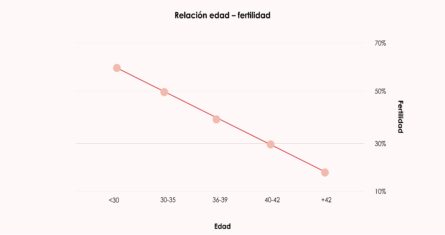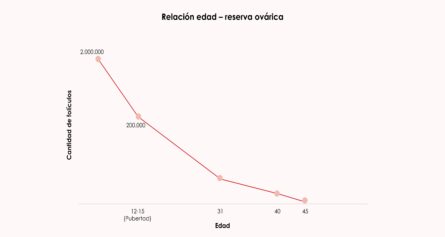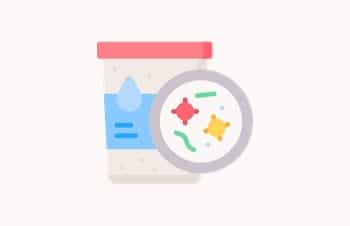From 25 to 35 years of age, the reproductive capacity of women drops by up to 50%. Now, thanks to Fundación Ginemed , we can know the state of our fertility for free with a blood test and an ultrasound.
Personal circumstances such as the extension of academic training, work demands or the economic situation have caused the age to be a mother to be delayed more and more. However, age continues to be one of the main factors affecting fertility, since from 25 to 35 years of age, the reproductive capacity of women drops by up to 50%, so, year after year, the chances of becoming a mother with your own eggs are considerably reduced.

In this sense, professionals have a responsibility to offer patients, and society in general, quality information and training, so that they can make informed decisions. And it is that, with a blood test and an ultrasound, we can measure the state of the woman's fertility. Thus, we can prevent social sterility –the most frequent cause of sterility in consultation-. Now, thanks to the Ginemed Foundation, it will be carried out free of charge for all women between 23 and 38 years of age at any of the Ginemed centers.
What is the best age to become a mother?
The best age for a pregnancy isbetween 20 and 30 years old, as this is the time when the ovaries have the best reserve and quality of eggs.
In this age range, we can seek a natural pregnancy approximately 1 year and a half before seeking professional help. If there is a history of early menopause in the family, it is important to mention it to your gynecologist. If you don't consider getting pregnant during this stage, you have the possibility of preserving your fertility.
Between 30 and 35 years old, the chances of achieving a pregnancy naturally are good. If we do not have plans to be a mother yet, we have the possibility of preserving our eggs. The ideal is to do it before the age of 35. From the age of 36, the female reproductive capacity decreases considerably.
If the woman's age is close to 40 years and she has not achieved a pregnancy after 6 months, it is advisable to consult a specialist.
How does a woman's age influence fertility?
All women are born with approximately2 million eggs. We do not have the possibility of manufacturing more, the ovary only keeps them until they are exhausted. As we age, we lose a significant number of eggs. In fact, for our first period, the number of eggs we have is already reduced to 200,000.

Over time, not only the number of eggs available to us is reduced, but their quality also decreases. In addition, throughout our lives we can suffer from diseases that affect our ovarian reserve and the quality of our eggs.
What is advanced maternal age?
Although we continue to have regular periods, even after the age of 50, this does not indicate that our reproductive capacity is optimal for achieving a pregnancy. The ability to achieve a full-term pregnancy decreases a lot, between 10-15%. From the age of 41, it is very difficult to have a child without resorting to an assisted reproduction technique.

Above this age, the chances of having to resort to donor egg treatments increase. Pregnancies in this age range often carry increased maternal and fetal risks.
Advanced maternal age and pregnancy
If you are over 40 years old, do not wait more than 6 months to start an infertility study. Remember that obstetric complications are more frequent as the mother's age advances.
For all of the above, our work as professionals in the field of prevention is essential to make society aware that there are factors that affect our fertility and that they are modifiable, such as not delaying motherhood beyond 35 years.





No hay comentarios